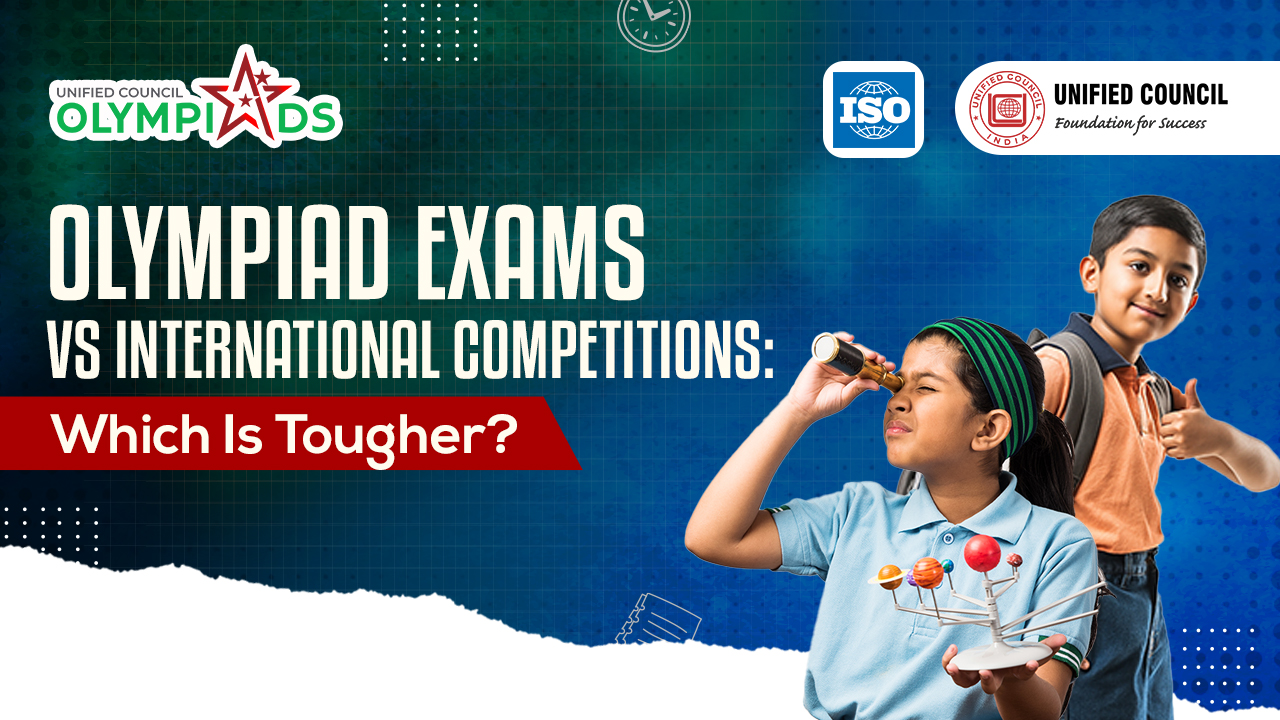
Posted at - 22-Sep-2025
When students dive into the world of academic competitions, they often wonder which path presents the greater challenge: traditional Olympiad exams or international competitions. Both formats test intellectual prowess, but they differ significantly in structure, preparation requirements, and difficulty levels.
Olympiad exams represent structured academic competitions that test students' knowledge in specific subjects like mathematics, science, or languages. These competitions typically follow a tiered system, starting from the school level and progressing to national and international stages.
Key characteristics of Olympiad exams:
The rise of online olympiad platforms has made these competitions more accessible than ever. Students can now participate from anywhere, eliminating geographical barriers that previously limited participation.
International competitions encompass a broader range of formats and subjects. These might include science fairs, debate tournaments, programming contests, or research presentations. Unlike traditional Olympiads, international competitions often emphasise practical application and innovation.
Distinguishing features of international competitions:
The question of which is tougher doesn't have a straightforward answer, as both formats present unique challenges.
Olympiad exam challenges:
International competition challenges:
Traditional Olympiad preparation follows well-established patterns. Students can access years of past papers, attend coaching classes, and follow structured study plans. The online olympiad trend has further streamlined preparation with digital resources, practice tests, and virtual coaching sessions.
International competitions demand more diverse preparation strategies. Students might need to conduct original research, develop prototypes, learn presentation skills, or master collaborative techniques. The preparation timeline is often longer and less predictable.
Different competitions reward different strengths:
Olympiad success factors:
International competition success factors:
Rather than declaring one format universally tougher, consider these factors:
The difficulty depends on individual strengths. Students who excel at structured problem-solving might find Olympiads more manageable, while creative thinkers might thrive in international competitions.
Olympiads offer predictable challenges with clear benchmarks for success. The standardised format means students know what to expect, though the competition remains fierce.
International competitions present unpredictable variables that can make them feel more challenging. The need to adapt to new formats and judging criteria adds complexity beyond pure academic knowledge.
Both paths offer valuable learning experiences and can open doors to academic and career opportunities. Students should consider their strengths, interests, and long-term goals when choosing their competitive focus.
The growth of online olympiad platforms has made it easier to try both formats. Many successful students participate in multiple types of competitions, building diverse skill sets that serve them well in higher education and professional careers.
Ultimately, the "tougher" competition is the one that pushes students to grow, learn, and discover their potential. Whether through traditional Olympiads or international competitions, the journey of academic competition builds resilience, knowledge, and confidence that lasts a lifetime.